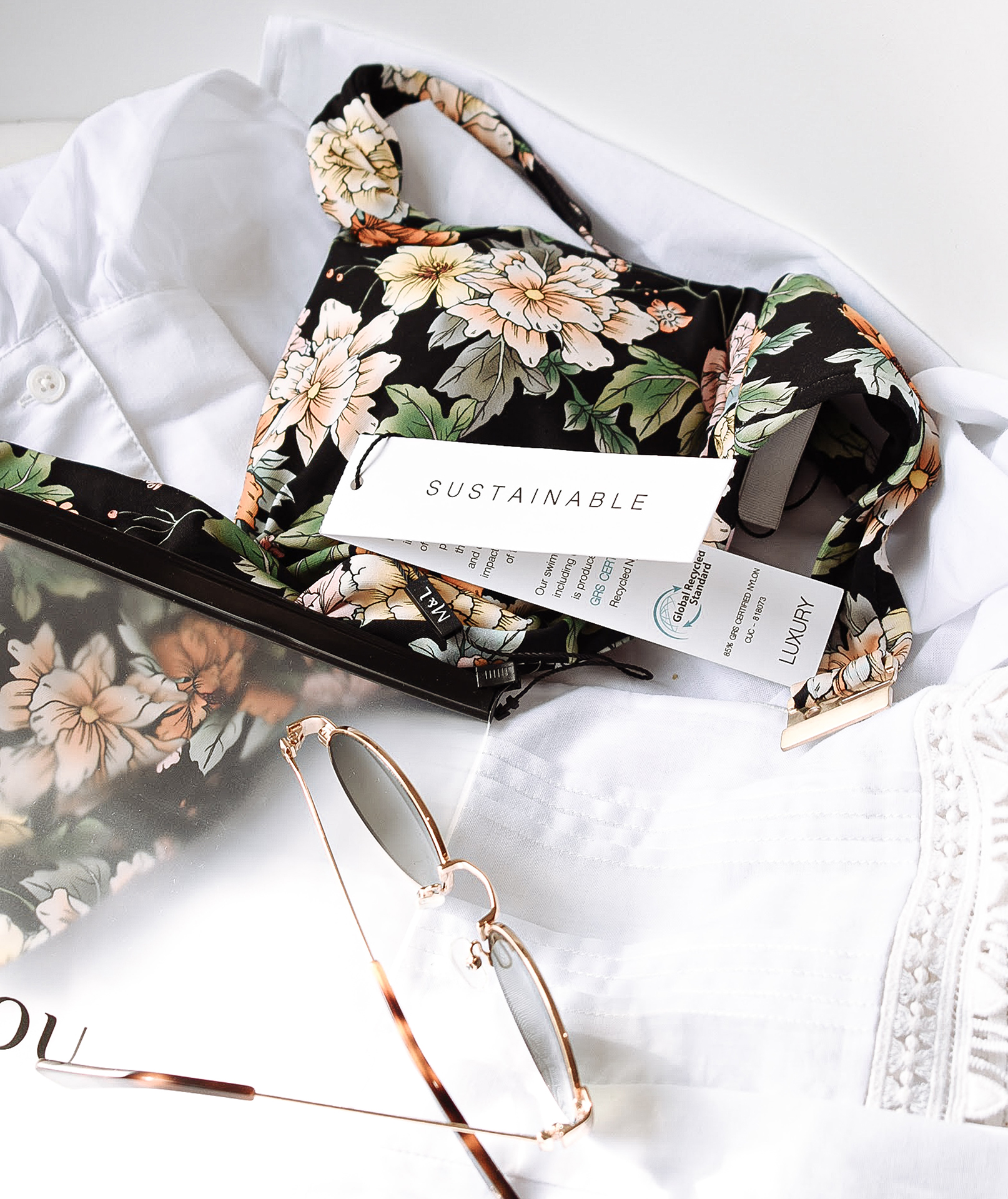
5 Reasons Why Sustainable Fashion Matters
by Natalie Bencivenga
August 22, 2022
We are in the midst of a climate crisis and if you are anything like me, it is hard to sit by and do nothing. And while individual actions won’t get us out of a collective crisis — that will take us pressuring our governments and large, international corporations to eliminate their fossil fuel emissions — we can be sure that any commitment to sustainable fashion can help reduce emissions and improve the environment.
The fashion industry is one of the worst global perpetuators of carbon emissions, and slow fashion movements are taking hold around the world which both improve the quality of life of workers as well positively impacting the environment.
So what makes sustainable fashion matter? Check out these five reasons below to help you stay motivated and inspired in your eco-chic journey!
1] Sustainable Fashion Saves Natural Resources: Did you know only 3% of fashions are made from recycled materials? That means 97% are using resources that pollute the ground water, add chemicals to the air and to our skin. By using recycled materials, we can cut down on our impact on virgin resources and tackle the growing issue of waste management around garment creation.
TAKEAWAY: Shop secondhand!
2] Sustainable Fashions Saves Animals: Cruelty-free alternatives are becoming more mainstream as more people become aware of the impact the fashion industry has on animals. More than 430 million animals are killed each year for leather — which is not a by-product of the meat industry. In its place, more designers are choosing eco-friendly fabrics that mimic leather and are made from recycled plastic bags, for instance. Even pineapples are getting into the mix, as well. Learn more about that initiative HERE.
TAKEAWAY: Try eco-friendly, cruelty-free alternatives to leather like the ones shared above
3] Less Water Means! More Sustainable Fashion: Did you know that it takes 2,700 liters of water to produce one single t-shirt? With fresh, clean water becoming more scarce, this issue is about human rights. We all have the right to fresh, clean drinking water. The organic cotton industry, for instance, uses 91% less water as opposed to conventionally grown cotton. But only 1% of all cotton produced is organic. This needs to change.
TAKEAWAY: In the meantime, there are other fabrics you can focus on when shopping for clothes that require little to no water during the production phase including recycled cotton, hemp and linen. This is another great reason to shop secondhand!
4] Sustainable Styles Mean Better Working Conditions: Environmental justice is intersectional. When we focus on the environment, we have to turn our attention to labor rights as well as racial and gender justice. Nothing exists in isolation. Garment workers around the world often work for less than a living wage, in unhealthy or inhuman conditions, without limitations on hours and with unacceptable safety conditions. Many children are also put to work, which is abusive akin to modern day slavery. According to UNICEP, more than 170 million children around the world are forced into child labor to produce garmets primarily for the western world. Putting pressure on the garment industry to do better for workers means we do better for the environment, too.
TAKEAWAY: Look for eco-ethical brands that respect the people who create the clothing. Research brands you love to see what they do to ensure good working conditions, as well as mitigate their impact on the environment. Our voice can be heard with how we choose to spend our money. Be vocal on social media and call out companies who aren’t committing to workers’ rights. Put pressure on those in positions of power and hold them accountable.
5] Sustainable Fashion is Better for Our Health: Fast fashion is drenched in chemicals that harm both our bodies and the environment. More than 8,000 synthetic chemicals are used to process garments. These chemicals kill farmers who handle them and cause serious birth defects in their children. Remember, your skin is the largest organ of your body, absorbing anything it touches. Always wash your clothing prior to wearing it.
TAKEAWAY: Shop secondhand, shop for organic clothing, take note of toxin-free labels marked with chemical content certification label such as OEKO-TEX®, GOTS, or BLUESIGN® and buy less.
Love what you have, get creative in restyling, and commit to one month a year (at least) to not shop for any clothing. When you do, prioritize companies committed to slow fashion and those reducing their carbon footprint in tangible ways. We all can’t do everything, but we can all do something to save our planet and create a better future!

Leave A Comment